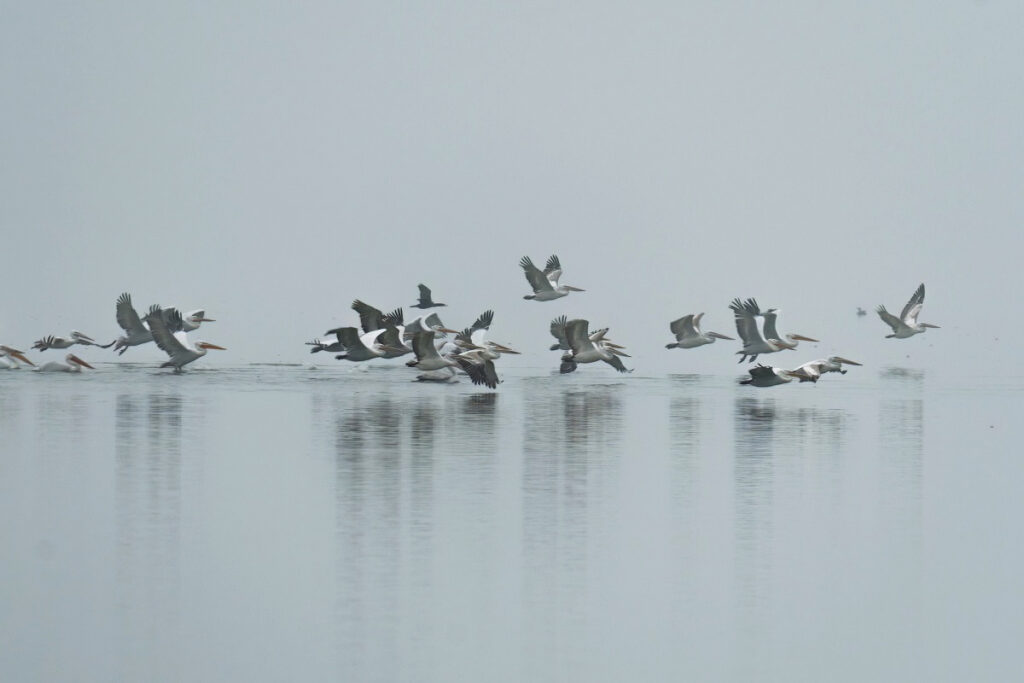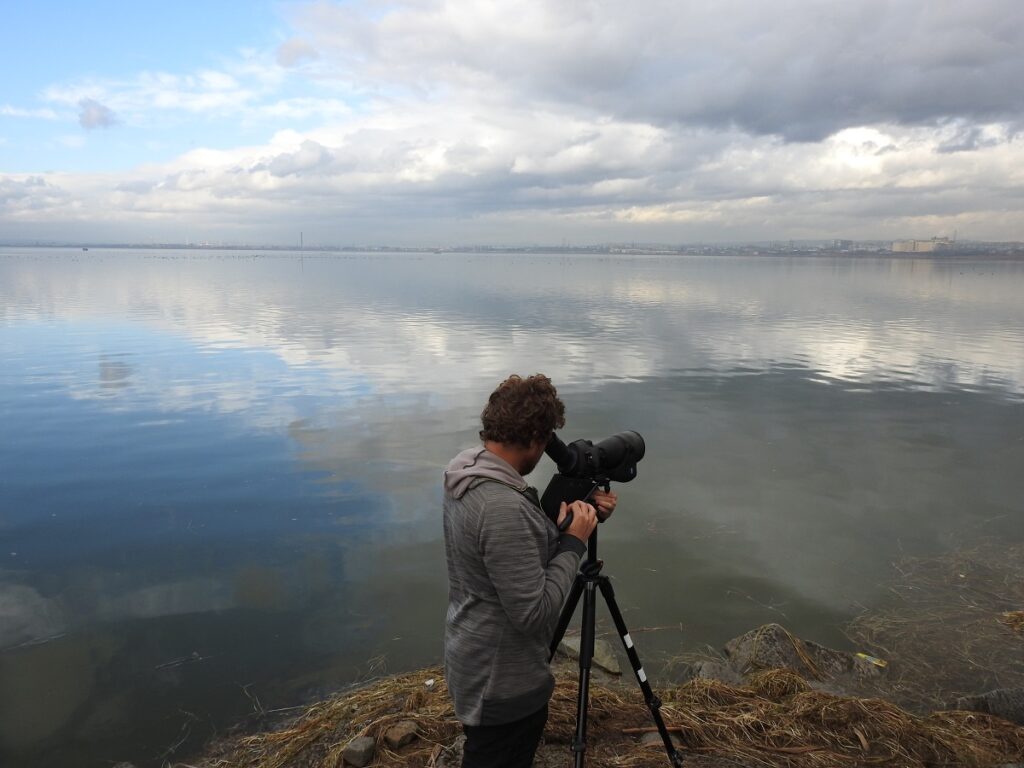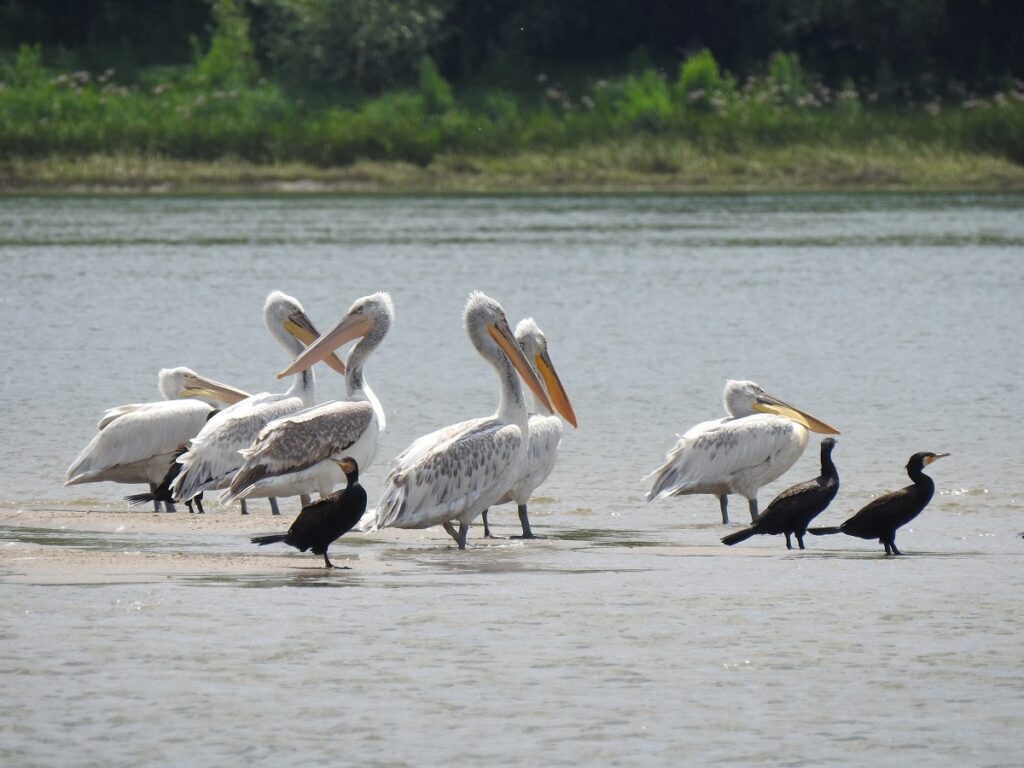An international census of wintering Dalmatian pelicans on the Balkan Peninsula took place in late November and mid-December. The purpose of the census is to collect data on the number and distribution of endangered Dalmatian pelicans in the study area. Тhe study was conducted in two stages. A census was done at the end of November in the Western Balkans – Western Greece, Albania, and Montenegro. In the period December 9-12, wetlands in Bulgaria and Romania were visited by scientists.

Teams of the Bulgarian Society for the Protection of Birds (BSPB) also joined the international initiative. They visited the wetlands of the greatest importance for the wintering Dalmatian pelicans in the country – Burgas Lakes, Srebarna Lake, Ovcharitsa Dam, Rozov Kladenets, Studen Kladenets, the islands along the Danube River, Varna Lake, and more.
А total of 754 Dalmatian and six Great white pelicans were counted in Bulgaria. By comparison, during the 2021 census 1,469 Dalmatian and 48 Great white pelicans were counted in the country. Traditionally, the largest number of Dalmatian pelicans were observed in the area of Atanasovsko Lake near the city of Burgas – 535 ind., on sandbars and islands along the Danube River in the section from the village of Dolni Tsibar to the town of Silistra – 172 ind. and in Lake Srebarna – 12 ind. Five Great white pelicans were found in the Mandra Dam and one – in the Rozov Kladenets Dam.

The data collected will contribute to better knowledge and planning of conservation activities for the Dalmatian Pelican in Southeast Europe. Cross-border cooperation is key to the conservation of this species.
The actions for protecting the Dalmatian pelican are carried out The conservation activities of the Dalmatian Pelican are carried out in the framework of the “Pelican Way of LIFE” initiative (LIFE18/NAT/NL/000716), funded by the LIFE Programme of the European Union and Arcadia Foundation, and with the assistance in Bulgaria of the Whitley Fund for Nature.
